 Jeremy Helligar (pictured) is a journalist, author, and world traveler from New York City, where he spent 15 years working for People, Teen People, Us Weekly and Entertainment Weekly before moving to Buenos Aires on a whim in 2006. He lived there for four and a half years before once again packing up his things and hopping all over the globe — from Israel to South Africa to Italy to Thailand. He currently lives in Sydney, Australia where he works as an editor for Ninemsn and maintains a blog.
Jeremy Helligar (pictured) is a journalist, author, and world traveler from New York City, where he spent 15 years working for People, Teen People, Us Weekly and Entertainment Weekly before moving to Buenos Aires on a whim in 2006. He lived there for four and a half years before once again packing up his things and hopping all over the globe — from Israel to South Africa to Italy to Thailand. He currently lives in Sydney, Australia where he works as an editor for Ninemsn and maintains a blog.
His first book, Is It True What They Say About Black Men?: Tales of Love, Lust and Language Barriers on the Other Side of the World is a humorous travelogue and memoir about being a gay, black, American man living in self-imposed exile. Queerty recently had a chance to interview Helligar about the book and the racially-charged question he’s come to dread.
What is it that you find so annoying about the question, “Is it true what they say about black men?”
The repetition is the worst part. I think the first few times I heard it in Buenos Aires I probably chuckled. But by the 50th time, it gets old. There’s a lot more pressure on black men to live up to certain sexual standards, pressure that I don’t think is necessarily placed on white guys. That question, for me, represents this glaring double standard.
How about we take this to the next level?
Our newsletter is like a refreshing cocktail (or mocktail) of LGBTQ+ entertainment and pop culture, served up with a side of eye-candy.
What are some of those sexual standards?
Well, the first stereotype is the obvious one, that all black men are well-endowed. I think that goes hand in hand with the stamina stereotype and also the preconceived notion of black men generally being tops. I imagine that these stereotypes are rooted in mental images and associations that go even further back than porn, as far back as the slavery era, when racist whites equated black men with feral beasts.
So you consider the question to be racist?
I do think it is a racist question. What people don’t realize is that by asking it, especially right out of the starting gate, by making us all about how we are in bed, they are stripping us of our individuality and equating us with our penises. After so many years of thinking of myself as a multi-dimensional human being, I realized that, for many, I was merely the size of my penis. In my experience with too many non-black men abroad, being with me has been more about satisfying their curiosity than getting to know the man beyond the skin color. Most gay white men never have to deal with that.
I like the part in the book where you talk about how some gay guys are very quick to write off potential lovers/boyfriends simply because of their race, i.e. gay men who put on their Grindr profiles “No asians.” I often hear guys argue that it’s not racist, it’s about personal preference.
Saying I like apples better than oranges is a statement of preference. Writing “No Asians” in your Grindr profile is not about preference. It’s about exclusion, especially when you insist on putting it in writing. You aren’t saying you prefer this over that. You’re saying, “If you’re Asian, don’t even bother.” These same people judge white guys individually and dismiss them individually. If they don’t like them, they just don’t respond or block them. But with Asians, they’re dismissing them collectively, making a preemptive strike against them because, well, they think they all look the same, or they’re all unattractive, which is basically what you’re saying when you say you’re not attracted to an entire race. I don’t understand how people can’t see the problem with this. It’s discrimination, which is key to racism. And the sad thing is, it’s an artificial, misguided distinction because “Asian” is as varied as “White.”
You talk about that in the book as well. “Asian” defines a diverse range of people. Asia covers China, India, Israel, Iraq, Russia. Yet folks tend to lump all Asian people into the same category.
The thing is if you’re thoughtful enough to make the distinction between the people of the various countries in Asia, you’re probably thoughtful enough not to insult them by putting “No Asians” in your Grindr profile. It’s pretty much the same as putting “No Europeans” in your Grindr profile. And would anyone do that? It’s such an ugly distinction because “Asians” are no less varied than “Europeans,” yet some people think it’s perfectly fine to lump them all into a box because a few physical traits fit all. Then they label the box “Asians: Do not touch!” and say, “Sorry if you’re offended, but it’s just my preference.” Well, you know what? Using the “preference” defense doesn’t make it any less racist.
At the same time, a person can’t control who they are attracted to.
If you’ve never been attracted to an Asian guy, or a black guy, or even a white guy, that doesn’t make you racist. What makes you racist is when your lack of previous attraction guides your future interaction with them, when you close yourself off from them completely. So instead of turning down an Asian guy, or a black guy, as most white guys would another white guy, because you’re just not interested, you make it completely about color. How is that not racist?
Having lived in a number of different countries, are there certain places where you found racism within the gay community more prevalent than others?
Racism exists everywhere, but it takes on different forms. In my book I talk about how it was the same yet different in Argentina, in Australia and in Thailand. I spent last year living in Cape Town, and it was the same/different thing there as well. The one common denominator is the question that gave the book its title. There’s been no escaping it abroad, even in South Africa, where there really shouldn’t be so much curiosity about black men as they’re everywhere. Of course, segregation persists even 20 years after apartheid, so there is less racial mixing than one might expect, especially on a sexual level. One of the most interesting things is how different my experience with non-white guys in the United States was. I’m not saying that Americans are more or less racist than people anywhere else, but in all my years in the United States, I was never asked “the question.”
Why do you think that is?
I think it’s because Americans are more careful about not mentioning race than people are in countries where black people are rarer. After all, America came up with “African-American” so nobody would have to say “black.” Guys abroad will say things like “I’ve always wanted to be with a black guy” and think it’s a compliment. It’s not a compliment. It’s not even sexy. That’s not about me; it’s about you. It’s like saying “I’ve always wanted to be with a woman,” and expecting every woman in the world to jump for joy because it’s so flattering. “You have a great smile” is a compliment. So is “I enjoyed your book.” It’s important to know that difference.
Graham Gremore is a columnist and contributor for Queerty and Life of the Law. Follow him on Facebook and Twitter.



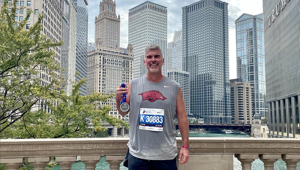
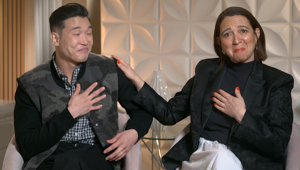
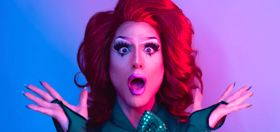

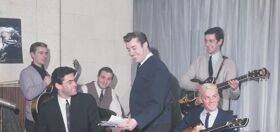




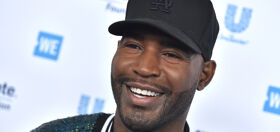
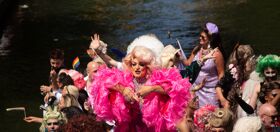

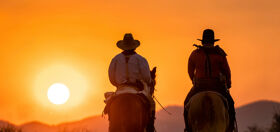


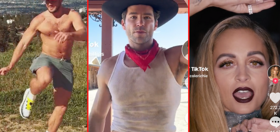
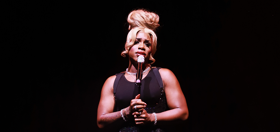

Billy Budd
Black men are indeed well endowed. It is proven scientifically. All the rest is bull. They can be tops, bottoms, and not always perform like beasts in bed! 🙂
darkanser
@Billy Budd: Not all of us are well-endowed, just like not all white guys are small to averagely endowed. The author really nails the analysis with intelligence and insight.
PRINCE OF SNARKNESS aka DIVKID
@Billy Budd: Usher Raymond IV begs to differ
(Now we know what that “IV” actually refers to)
middleagespread
In other words, dont be an a$$wh0le. Be polite, respectful, even complementary. Connecting with someone on an emotional and intellectual level makes skin color, body type, masculinity become irrelevant.
QJ201
@Billy Budd: Really? proven scientifically? Care to provide the source?
and your own personal study is not ‘science’
NoCagada
@Billy Budd: Oh, so it’s penis envy that creates all your posted idiotic comments?
TriForceKid1013
There actually is a chart of the average sizes of penis for every race I believe the African male is like second or 3rd on the chart while Asian is last.
lauraspencer
Here we go again….
A new year and a new story about race.
I don’t understand why anyone bothers putting what they don’t want in their profiles rather than what they do want. It would be more clear to those you are looking to attract and not offensive to others.
I have never understood the “No Fat, Fems, Balds, Blacks, Asians, over 40….” approach. When I read that kind of posting it sounds like nothing will please the poster. Why not something like “Looking for a fit, sports watching, latino with full head of thick hair under 40 please” The second wording states clearly what you are looking for and doesn’t upset people.
If someone writes to you and they aren’t your type you simply write “Thanks for the response. I don’t think we’re a match. Good luck.”
Random
@Billy Budd: Even if ALL black men were well endowed – and there’s no evidence, scientific or anecdotal, to suggest that’s the case – very few people (of any race) actively enjoy being objectified, especially for the size of their genitals.
adventuretime
@Billy Budd: We’ve had this argument before. First of all, almost nothing is “proven” scientifically. Definitely not from self-selecting (and self-reporting in some cases) surveys. Which is why theories exist. Secondly–just stop. No one wants to hear it. It’s a bullshit argument stemming from your own–issues, or whatever you have going on–and the author has explained very nicely here why it is ANNOYING to hear black men objectified over penis size. Yet still you persist.
Sweet Boy
Once you’ve had Black…you never go back
robho3
I am a supper hoe- had sex with 1000’s of men over my lifetime. In my wealth of experience I have found that yes black men tend to be more well endowed. There are exceptions. I would say 10% black men are small. (again this is just from my own research). And yes Asian men do tend to be smaller -exception 10%. I once had an Asian man that was sooo big I wouldn’t let him fuck me. (but I think he might have been mixed). White guys are all over the place. Hispanics tend to be bigger and wider- I would say 60-70%. I am an equal opportunity hoe– I like them all— big, small. green, purple—- it’s all good. I will continue my research as this is an important matter.
Random
@Sweet Boy: Comments like that, which I think people intend to be complimentary, to many black people come across as crass and offensive. If someone said that to me on a date, I’d make my excuses and leave. I want people to like for the person I am, not because they think I fulfil their criteria of what they perceive a specific race to be.
So be careful when you make that comment, because I know for a fact that a lot of black guys wouldn’t want to go a second date with you, if you said that to their face.
Arcamenel
What people don’t understand is that even those “positive” stereoytpes are problematic because they become internalized and put pressure on the affected group to live up to them. I had chinese-american friend in high school who was absolutely terrible at math, something our teacher should have known after like the first couple assignments. However like clock work when no one wanted to answer a problem she’d call on him and of course he wouldn’t have any idea. He’d get asked about homework by other students and it really stressed him out.
@lauraspencer putting what you are looking for is definitely a more politically correct way to show your prejudice. Jeremy puts it very clearly in his answer, just because you’ve never found a member of a certain race attractive in the past does not mean you should write off a completely varied group of people completely. Especially when it’s almost never done with white guys by other white guys or any other race. White men are able to distinguish who they find attractive in white guys and not cast them with such a broad brush but for some reason that goes out the window with black or latino men who I’ll even go so far as to say are even more varied when you take in account all the different attributes we can have.
dave lopes
The never ending whining by BLACKS especially Black Gays attracted to other races.
I am a black male and I grew up in the west indies, west africa, canada and the US.
There are indeed physical differences not just between races but inside races…what we call sub-races.
West african blacks are build differently from south african blacks and from blacks from the horn of africa.
You will find same variations among Europeans and Asians.
In addition blacks in the new world have much admixture from Europeans making them different from non-admixtured blacks.
AVERAGE Penis sizes vary among these different subgroups. Some Euro subgroups are bigger than some Afro sub groups and so on.
YES, YES, YES one can be NOT attracted sexually to an entire race…..because it is a PHYSICAL attraction.
That does not mean one is closing out ALL other relationships with an entire race.
On a SEX ad for the sole purpose of SEX, it is best to list the folks/types who need not apply. It saves time for everyone.
If one feels offended, that is an issue for the offended to deal with.
Billy Budd
For all of you **** who pretended not to understand what I said:
There is scientific evidence that africans have bigger dicks. That doesn’t (obviously) mean that EVERY african or african american will have a dick that is bigger than yours, or that it is big, period. It means that, ON AVERAGE, black guys have one or two inches more. On average. Haven’t you ever read a scientific study? Don’t you know even the most basic facts about scientific studies on populations? How can you be so *****?
Tackle
@Billy Budd: I see that your comment brought out the insecurity of some. And your from Brazil. Maybe they have done scientific research there on Black men and penis size? But I’m almost sure that the Discovery Channel, a few yrs back did a special on this topic, and stated that on average,Black men were about an half-inch to inch longer. Not sure what science was used to come to this conclusion.
But is anything proven scientifically that Blacks on average tend to have bigger butts, lips, wider noses and can jump higher and run faster or are there some things we can just see and whiteness??
I don’t think ALL Black men are big. But I do believe that on average, Black men as a whole are.
It has been proven that Blacks have more DHT: Dihydrotestosterone. This DHT plays an important role in the formation of male external genitalia. And it’s one of the reasons Blacks: men in particular have an easier time than other groups in building muscle mass.
But I say so what to all this. Bigger does not mean better, or sexier. And it sure will not determine if the sex will be great.
If it was stated that Blacks commit more crime, people will not be debating or asking for scientific evidence…
Billy Budd
There are many sources for the above mentioned information. Try wikipedia for chrisssakes.
Billy Budd
Or google it.
nature boy
@robho3: ROTFL I’m with you buddy. The black men I have tricked with were great lovers because they were just somehow more comfortable in their skins with sexuality, more upfront, and didn’t seem to have as much of the hangups about sex that white guys often had. And they were amazing kissers! The first time I kissed a black man I was blown away. So it wasn’t always about the dick. Not a huge sample size but very positive experiences.
As far as people excluding other races, it’s about years of cultural images we have grown up with. We don’t see a lot of images of asian men in media portrayed as hot. I ignorantly also felt “I’m just not attracted to asians or Indians”…. well when I moved to Hawaii and started seeing more of the smoking hot asian men out here I was greatly surprised how my feelings changed. It took about 3 years for my mindset to adjust. I imagine the same would be true of Indian men, if I moved to India, I would discover that in fact Indian men can be smoking hot as well. So, ignorance, yes. Posting it in your profile is basically saying right up front “I’m an ignorant dumb-ass.”
jwtraveler
When I read the title of this story and saw the photo of the bulging crotch, I groaned and said “Really?” But I actually found Mr. Helligar’s answers quite insightful and it’s rare that I find a printed interview interesting to read.
On another note, when Americans talk about “Asians”, we mean the people who we are no longer allowed to call “Oriental”, i.e., people from East Asia, primarily Japan, China and Korea and perhaps Southeast Asia (Philippines, Vietnam, Thailand, Indonesia, etc.) These people share similar physical features: eyes, nose, hair, stature and hairless bodies. We do not generally refer to Indians, Pakistanis, Afghans, Iranians and Arabs as “Asian”. This is probably due primarily to the variations in physical characteristics, but also to Americans’ total ignorance of geography: most have no idea which countries are or aren’t in Asia.
sxschulz
@dave lopes:
“On a SEX ad for the sole purpose of SEX, it is best to list the folks/types who need not apply. It saves time for everyone.”
-Yes and no. Yes, about the not wasting your time. No because I’d agree more closely with that you should share on your profile what you’re looking for not what you don’t like. Who wants to associate with these negative, judgmental bitches?! On a related note, I’ve stated what I’m interested in on my profile. The majority of those that hit on me don’t bother themselves with reading, LOL. It says something about those in our community who use these apps.
Also, I’d like to add, those people bothered by the race issue, please take note, everyone in the world can’t be intelligent, wise, know the art of seduction, so on and so forth. That’s what makes the world interesting: The search for a match (even if it’s just a match for two to three good fucks 😉 ). Do you think bars/nightclubs/gay parts of town would be bustling every day of the week if everyone was mature and wise? No, they’d be dead. Everyone would go home after having had enough to drink, wouldn’t go out during the week if they had to be at work early, so on and so forth. You must have masses of dumb people for “filler”.
sxschulz
@Billy Budd:
I read the study years ago here in the U.S. as well. You’re not alone. Popular media and its followers are infected with permanent amnesia.
Desert Boy
Here’s an interactive World Map of c o c k size. Now, size queens can plan their next vacation with confidence.
http://www.targetmap.com/viewer.aspx?reportId=3073
Xzamilio
@dave lopes: You wrote it off as “Whining” indicates you didn’t bother to read the article, or you just plain didn’t care what ole boy was saying in it. How do you justify not being attracted to an entire race when there is not one race in the world that shares identical features, characteristics or even skin tone? Whatever though… morons like you will continue to exist so why bother?
sxschulz
@Arcamenel: @Arcamenel:
“White men are able to distinguish who they find attractive in white guys and not cast them with such a broad brush but for some reason that goes out the window with black or latino men who I’ll even go so far as to say are even more varied when you take in account all the different attributes we can have.”
Black men and latino men don’t share the same challenges in gay culture. Challenges faced by black men are different than those challenges faced by latino men. The author of this article has pointed out in this article and in previous ones that he experienced more racism in Latin America than he did here. I’m part hispanic and have mostly hispanic friends. I can attest to the higher likelihood of racism in hispanic culture than you find in American culture. I know, this goes against the politically correct narrative. Knowledge is power.
corey
In my personal experience: Yes, Yes, Yes, Yes. I think thats the correct count…..
sxschulz
“I’ve always wanted to be with a black guy” and think it’s a compliment. It’s not a compliment. It’s not even sexy. ”
Totally agree with this. I previously commented on this author’s experience as a black male traveling the world in another publication. My disagreement with the author is this: Black males are at the top of the “top pyramid” in the gay world. Penises are to gay men as titties are to straight men. I think the majority of gay men lean towards being bottoms. Many gay men are immature with little life experience. Even a 40 something year old gay man may come off as immature and inexperienced. It’s kind of sad. All that work for liberation done by our predecessors in the 60s and 70s and a lot of gay males are squeamish and clumsy when faced by their fantasies.
Please write a book where you describe successful, sexy interracial experiences. Explain what works. Politically correct platitudes don’t work. Gay men are already de-sexed enough as it is. I understand what the author is talking about when he says that these lines from a porn movie aren’t sexy in real life. Help the reader and the inexperienced to understand what works and why. Everyone isn’t as worldly and sophisticated as you are. There are lots of nuances to seduction. Let’s not beat up so many gay men who don’t know how it works. Some of us may have been them at one time. We didn’t know. Popular gay media doesn’t help. Be a helpful and sex-positive voice in the confusing gay world.
To those commenting on here please bother to read the article. He’s mostly discussing his experience OUTSIDE the U.S. Thailand is an Asian country with a majority non-white population. Please avoid taking yet another opportunity to paint a wide brush of racism over white American gay men.
polarisfashion
A man’s junk is great to look at but I’m more concerned with the man as a whole. I don’t want to be with someone that’s a jerk.
mokuhulu
Load of crap. Don’t even ask the question its insulting and shows that you don’t care about the person only his meat. Big (tall guys), short guys, any race its all a box of chocolates – you never know what you’re going to get. Besides it the nuts that give them flavor 😉
sxschulz
@middleagespread:
“Connecting with someone on an emotional and intellectual level makes skin color, body type, masculinity become irrelevant.”
Are you gay? You know in our culture men hook up and connect with other men purely on a physical level. Even in the pre-internet days gay men hooked up with each other first based on appearance. Many of the very young don’t understand the art of seduction – where conversation creates an ambiance for having sex. Many older men haven’t learned that either. That is their loss but they were taught by the gay culture that was passed down to them. Calling them assholes, as if they came up with how to interact with other gays all on their own, is like blaming the victim.
Many of us were raised by gay culture. We didn’t start succeeding in love and sex until we forsook what the culture taught us and became self-confident about standing on our own.
adventuretime
@Billy Budd: Your use of asterisks is comical.
The difference between all races is negligible, and comes down to less than an inch in many studies. If the average white man you meet has a dick size of 5 inches, and the average black man you meet has an average of 5.5 inches–why would that matter? Why is that reason to uphold a tired, old stereotype that (clearly, as you have heard testament from this author and many commenters time and time again) does more harm than good? Why is that reason to fetishize an entire community, as if every black man you meet is automatically going to come out swinging a baseball bat from his pants? When in reality, the average penis size between people of any race is going to be very similar?
You can hide behind claims of scientific evidence all you want–no one is stupid, no one is refuting that there obviously must be SOME difference. But your two comments: “black men are well endowed” and “black men, on average, have bigger penises” are contradicting. The first is an extreme generalization. The second takes into account minute differences between races. Learn the difference, and stop being so damn frustrating.
money718
Sigh…
dave lopes
@Xzamilio:
You have shown the only moron is you by calling others morons.
Grow up and learn to discuss and disagree without being disagreable.
Even with the variation found within one race, there are still basic features that is common. That’s how we discern one race from another.
No one has to justify why they are or why they are not attracted to a specific race.
No one is hurt, no freedom is taken, no rights are violated by one’s attraction limited/restricted or not.
People like yourself who feel hurt or offended need to search inside and find the reason for your insecurity and need to tell others who they should or should not be attracted to.
adventuretime
@dave lopes: No one’s saying you have to justify your prejudices…what people are saying is, don’t be surprised/shocked when people call them out for what they are.
And you missed the point of this article if you think that “no one is hurt” by it
dave lopes
@sxschulz:
I hear you but you are making the same mistake as others by putting intelligence and other attributes in sexual attraction.
So being sexually attracted to everything is a sign of intelligence….lol…lol.
That is nonsense.
It is amazing to me that homosexuals who have had the hardest time explaining their sexual attraction to the majority have no ability to listen to others express a different type of attraction or non attraction.
Simply because it is based on race/racial physical attributes.
I guess we all react with fear and anger to things we can’t understand.
dave lopes
@adventuretime:
No my friend, people call them for what they think they are.
The same way people call same sex attraction all kind of names.
But do give an example of how someone is hurt by someone who is not sexually attracted to specific races.
adventuretime
@dave lopes: well, I posted a reply to you. But queerty isn’t letting it go through. So, I guess that’s the end of that.
AxelDC
Of the black men I’ve been with, yes!
Clark35
I have gay black male friends who happen to be tops and hung; but don’t like the r a c i s t stereotype that “Black men are hung” or when a man says to them “Give me that big black dick” since to them it just shows them how the guy wants them just because they are black, and because of a r a c i s t stereotype.
They don’t take offense to people who are not attracted to all races, as we all have our own personal preferences.
@Desert Boy: I happen to be Caucasian, hung, and of European descent, so I doubt that map is accurate as you’ll find hung men in all different countries.
Blackceo
http://now-here-this.timeout.com/wp-content/uploads/2013/02/tumblr_m4x7vajcAa1rp3f1f.gif
Yes let me just eat my popcorn and read some of these messy as fuck comments. Anyway, the author makes very intelligent points. People say stuff that they think are compliments, but are really not. “I’ve always wanted to be with a Black guy” is not a compliment. One of the ones I get too often which isn’t even sexual is “You’re so well spoken” Well exactly how were you expecting me to sound bitch?!!!!
Anyway, his commentary would’ve been perfect in the thread from about a week ago that had over 100 comments about the Black guy who moved to West Hollywood and found it wasn’t what he thought it would be in the gay community. Jeremy summed up “preference” vs “exclusion” perfectly.
o.codone
it IS true. thank God. hahaahahaha.
Lovelife
Its funny because in my country,a majority of people are black. And not every black men is well-endowed. It depends on the culture you fall under.
American black men are largely descendent from the Northern parts of Africa. These guys can be physically imposing compared to those on the Southern parts of Africa and thus also EXTREMELY well-endowed.
Black gay porn emphasizes a lot on “size” more than its white counterpart. It also associates the role of someone to the size of his dick.So the “larger” you are,the more “dominant” you are perceived to be.
And there is also an association of black men being uneducated,unsophisticated, raw,dodgy or criminal; thug porn etc. I don’t think I have ever watched a “frat house” porn featuring black men.
A lot of the sex is “beastly” in nature, very “I am the man vs you my “bitch” ” etc. And I think that desensitizes a lot of people and errs them towards stereotypes in as far as black men are concerned.
People start to perceive them as extreme(either very fem or masculine) and nowhere in between.They also perceive the black man to be insensitive/shallow in emotional variation or intellect. NOT TRUE AT ALL.
The problem is when people start to see what is on TV,on the news, on porn and start to make it an accurate description of what is.
Or perhaps that is the idea behind it: To retard the black men into a sex object;devoid of feelings besides extreme anger or lust? Hmmmm
Blackceo
@o.codone:
LOL….in my experience I have also found that to be true and I also believe that map is pretty much correct. Of course there are going to be exceptions to the rule. Who said just because you are an Asian or European guy who happens to be hung it makes the whole map wrong? Its about what the average is.
Thinktwice
OMG this guy Jeremy really grinds my gears! He is offended at everything, and blames everyone else for their shortcomings.
PLEASE sir, take responsibility for YOUR total life and stop projecting that people have a problem because they articulate their sexual preference in a way that hurts your feelings or precludes you from having sexy time with them. Gosh you seem like you get offended at everything — I can’t imagine the suffering of constantly gettting offended over things you can not control. Do you realize your attitude pushes people like me, away from you? I’m physically attracted to you, but when you start talking, you make my brain angry. There’s nothing worse than dialoguing with someone who is holier than thou, gets offended easily, and plays the high-brow blame-game trying to control other people.
I suggest you are just coming up with a cop-out because you can’t handle the “perceived” rejection and blow to your ego. Please read “The Four Agreements” and you’ll learn a new perspective — to stop taking things so personally 🙂
Tackle
@Desert Boy: Thanks for posting the map. I do believe it to be accurate. And it does prove @Billy Budd: correct. And @Billy Budd: as I said in my first post, you struck a a nerve and tapped into the insecurity of some non-Black gay men. There is scientific proof about this topic. But as you see, many do not want to accept this. This mentality is mainly an American thing.
And LOL at some of these comments now. What I’m seeing is this reverse quasi concern: that this notion of Black men being well endowed is just “objecting them as sex objects”, and that we as Black men do not like this “r@cial stereotyping.” So what I’m getting at here, is that some want Black men to look at, and not to feel good about being known as having big dicks. And we have non-Black posters, stating that their Black gay friends do not like being known as having a big dick. Really! Unless he has a micro penis,and unless he lives vicariously through his penis, I have never met a Black man who was bothered by the “notion” of being endowed.
This author is probably bothered by this expectation, because he’s less than average, and he’s a bottom.
Aranos
@robho3:
LOL, I agree with you. I too could compete for the title of ‘super hoe’. In my experience, black guys usually are bigger, asian guys smaller. I absolutely understand why the question about it can be annoying. If people want to find out, I strongly encourage them to start their own study instead of fantasizing about it and asking rude questions lacking any empathy and respect. And they will find out that dick size is just one part of the package…
adventuretime
@Thinktwice: People like Jeremy are people who push forward progress. Or did you think things get better for groups of people just by magic? There’a s difference between “being offended by everything” and “trying to educate people about prejudices and sterotypes”
adventuretime
@Tackle: It’s not about being bothered by the notion of being well endowed (which I’m sure no man as an individual would object to), it’s the assumption/generalization that every black man you meet is going to be well endowed. Or aggressive. Or fulfill some kind of sexual fantasy.
jockjack5
My somewhat limited exposure to dicks in general over the years has led me to believe that most black men are “showers” as opposed to “growers”.
Although longer when flaccid, it doesn’t get much, if any, longer when aroused, and remains sort of spongy and pliable.
Now this is of course true for ALL men as far as being a grower or a shower, and certainly is NOT exclusive to black men.
bbg372
A thoughtful article denouncing “positive” r a c i a l stereotypes, and the comment section is filled with benevolent r a c i s t s reinforcing them, wrongly thinking it some kind of compliment. Maybe they should have read the article.
adventuretime
@jockjack5: see, this is what I’m talking about. “My somewhat limited exposure” and “most black men”–how can you say those two things in the same sentence? How do people not understand that you cannot make sweeping generalizations from limited personal interactions?
nature boy
i did learn one thing from this post: the next time I am trying to pick up a black man, I will start by complimenting him on his smile.
Random
@nature boy: Haven’t you been doing that already? Surely you never thought it was acceptable to start out by making some sort of reference to his penis?
Black Pegasus
I find it so very oxymoronic that the Black guys who complain the loudest about racism they’ve experienced from other Gays, are themselves less likely to date a Black guy. They are in essence Snow Queens! The author of this book appears to fit some of those characteristics. Other than having my passport stamped, I have very little in common with this queen, and his book will not be on my summer reading list.
Random
@Tackle: I’m not sure there are too many men of any any race who are bothered by the notion that they are well endowed. What this author is talking about, and other posters here, is that when people are fixated on that assumption purely because of someone’s skin colour, and then that the becomes the pre-eminent reason for approaching them in the first place, then a lot of black men do feel insulted.
When one of thinks of white men, many things *can* come to mind – hung, average, small, intelligent, dumb, top, bottom, versatile, camp, masc, dominant, submissive and so the list could go on and on. With black men, though, society expects them to be hung dominant tops. This is why it’s important for the stereotypes to die, because black men are just as varied as white men, and they should have the freedom to express themselves however they choose rather than constantly having to bat away other people’s restrictive expectations.
adventuretime
@Black Pegasus: That’s a stupid generalization.
Also, maybe those black men are trying to enlighten some people outside of their race by introducig them to such diversity. Maybe not.
Either way, this guy makes some cogent points–what about his statements bothers you so much?
adventuretime
@Black Pegasus: Also, I don’t know if oxymoronic is the word you meant to use.
Lovien
Where I’m from literally 7 out of 10 profiles say “No Blacks”, I honestly don’t know why I even have Grindr anymore, it’s also confusing because I’m mixed- so I’m like “am I tainted w/ something you don’t want? Or do I have a chance because I’m yellow and sometimes pale in the winter. ????
tricky ricky
@Billy Budd: honey, I’ve seen more princess tiny meat black men than I’d care to count.
tricky ricky
@Black Pegasus: I applaud you for your comment.
gaym50ish
I can’t believe that any experienced gay man still doesn’t know the answer to this question. OF COURSE black men, on average, have bigger dicks — WHEN THEY ARE FLACCID! But those big dicks don’t get much bigger when they are hard.
A Caucasian man’s penis may grow to three or four times its flaccid size when he’s erect. A black man who is close to pure African descent is often well endowed, but the penis will get only slightly larger when it’s hard.
Random
@gaym50ish: On what evidence do you base your comments? How many black men have you actually seen in both a flaccid and erect state?
Blackceo
@gaym50ish:
Well in my experience this isn’t the case and I’ve certainly had my share of Black and Afro-Latino men.
Clark35
@Blackceo: Exactly. I saw some blog post by a white woman that claimed she “loved black men” but in her blog she wrote how she was surprised that this black guy she met didn’t like rap or hip hop; but loved opera. SMH.
@Black Pegasus: You make an interesting point. My gay black male friends I mentioned in the previous comment mainly date other black men, and latino men. They do not always date white or Asian men as much since in their experience white and Asian men who are bottoms want them to be a walking stereotype during sex.
Clark35
@Tackle: Excellent points.
Clark35
@Lovelife: Most North African people, like in the very northern countries like Morocco, Algeria, Tunisia, etc. are actually Caucasian.
KingEidilleg
I have a profile on both gaydar and planetromeo and find the number of profiles with ‘no asians’ disturbing. We all have our preferences (I like my men hairy for example) but to write off millions and millions of men because they’re Asian is just silly imo…
SonOfKings
As a Black man, I say that men of color need to focus their dating efforts on other men of color (Black and Asian) and leave these White dudes alone. I wish the author the best. He is correct in his assertions, racial stereotyping is a problem and a damn nuisance. But at the end of the day, you have to get in where you fit in; and that won’t likely be with Jack Frost! Can’t no negro cook with a block of ice.
KlausRose
@Billy Budd: I think you have things mixed up (Or you could possibly be making the black community of men look better just because u think many of them have a big penis) scientifically it was never shown black men in general are well endowed…It’s actually kind of rare for any man of any race to be well endowed and around 80% of men around the world or even more have around average size penis (around 5-6inches)…….what was scientifically proven is that the average size penis of a black man is only around an inch longer then the other races (being around 6-7 inches) which is normal-little above average size which means there are many black men out that have average size penis/possibly small penis….No one has scientifically Proven a lot of black men have a big penis… There has been many videos and documentary’s on youtube from both man and women saying the bbc stereotype is false and if they’re was one stereotype they wouldn’t get rid of it would be the one that we are discussing….anyone who has studied up knows the truth everyone else just base there opinion by experience or what they’ve heard ( and usually what they’ve heard is completely untrue/or at least twisted to the point where it isnt completely true